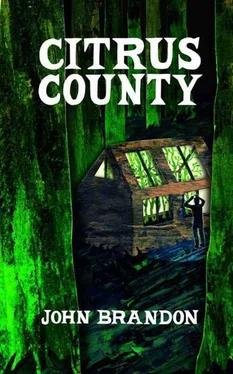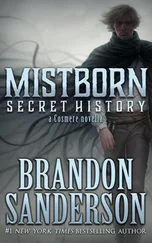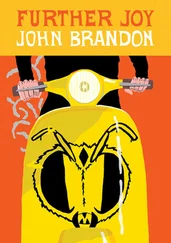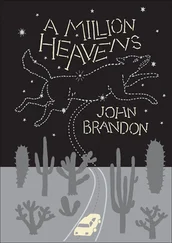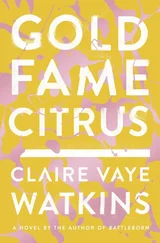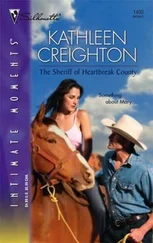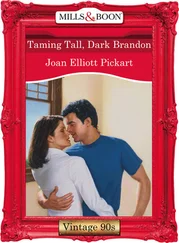John Brandon
Citrus County
For John William Schneider Sr. (1930–2008)
Toby took his tacos outside and crouched on a curb. He knocked some sour cream off onto the concrete, devoured the tacos without tasting them, crumpled the wrappers and tossed them over his shoulder. The wind had given out, and there was no way to tell it was wintertime. Toby thought he might still be hungry.
“You littered.”
Toby turned. He didn’t get up. A little boy had snuck up on him. The boy’s mother was still in the car, griping at someone on a cell phone.
“It’s true,” Toby admitted. “You’ve caught me in an unlawful act.”
“Littering is bad for nature.”
“Nature will be okay,” Toby said. “Nature always wins in the end.”
“You can get a fine. Up to five hundred dollars.”
Toby looked up into the boy’s face. Something was wrong with one of the boy’s eyebrows. “When the time comes, you’re going to make one heck of a hall monitor.”
The boy looked from Toby to the wrappers. They weren’t going anywhere — not the slightest breeze.
“Some people got it, some don’t. You saw me gladly minding my own business over here and something about that bothered you.”
“Are you going to pick them up?”
“You ever hear of an ice age?”
“Yes,” said the boy.
“It might take a long time, but we’re headed for another one. When the ice age hits, a couple of taco wrappers won’t make much difference.”
The boy shrugged. His knuckles were raw, along with his elbows. His T-shirt had a dolphin on it.
Toby stood and brushed his hands together, cleaning them of the gravelly dirt. He touched the boy’s shoulder.
“Your mom doesn’t love you as much as she used to. She thinks there might be something wrong with you. Is she right? Is there something wrong with you?”
The boy’s mouth opened a bit and his funny eyebrow scrunched. He turned back toward his mother.
“You’ve noticed, haven’t you? You’ve been monitoring her and you’ve noticed a difference in how she treats you.”
The boy stared toward his mother in the car, waiting to state her case into the phone. Her eyes were pressed shut with impatience.
“It’s all the bad thoughts you have,” Toby said. “On the outside you’re a hall monitor, but on the inside you’re one sick lad.”
Toby stopped at a 7-Eleven for a soda. The clerk was a young guy who wore bifocals and was always ready to harp on something. The counter was his spot in the world. Toby paid him in change. He took every penny from the little bowl near the register, and the clerk decided not to protest. He looked down on Toby through his spectacles as he accepted the payment.
Out in front they had dispensers of free newspapers and magazines. The things were free, but still nobody wanted them. Toby was finally out of the clerk’s sight. He set his soda down and removed all the papers, armload by armload, and dropped them in a trash can. The papers belonged in the trash. Toby was only speeding things along. He had to shove the last stack down with all his weight, smudging the newsprint all over his arm.
He walked under billboards for realtors, all smiles and outdated haircuts. He passed power pole after power pole, each smothered in tacked flyers — runaway dogs, stolen ATVs, missing bikes. None of these things would be heard from again. In Citrus County, you couldn’t keep anything unless you had a good hiding spot for it.
Toby wouldn’t have minded walking all night, clearing his mind of everything. He wished he could skip the next years of his life, skip to the point when he would be his real self, whatever that would be. All the pale fascinations of his classmates — music, drugs, cutting themselves, sex — meant nothing to Toby. Drugs were pathetic. Flirting, degrading. Toby was in the doldrums. He was killing time.
The gas station. Scant light scarring the sky. Toby planted his feet and took a full breath, the air tart with petroleum. He saw the pay phone over near the air and vacuum. He was as weak as ever. Anything could make him weak — the wrong smell, the wrong tint in the sky, thinking about all the dragging afternoons he’d endured in his lifetime and all the afternoons to come. He was addicted to petty hoodlumism. He rested what was left of his soda on the metal sill, picked up the phone, dropped in coins, and dialed a number at random. A man with a Northern accent answered and Toby asked him if he believed his life was worth a damn, if he honestly believed anyone liked him.
“Who is this?” the man said, eager, like he got prank calls all the time.
“Nobody you’d understand,” Toby told him.
“Pay phone,” the guy said, apparently reading his caller ID.
“At the Citgo,” Toby said.
“The Citgo? Tell you what, smart guy. I’m coming up there and I’m going to bash your brains in with a softball bat. How does that sound for a prank?”
“That would kill me, or at least do me grievous harm. That’s what my uncle used to say, that he was going to do me grievous harm.”
“I wish he had. It might’ve helped.”
“A softball bat?”
“I use it for softball. I guess it’s the same as a baseball bat.”
“You’re just saying you’d do that,” Toby said. “You really wouldn’t. You wouldn’t murder a fourteen-year-old kid.”
“I don’t know,” the guy said. “I think I might this time.”
“Trust me, you’d think better of it. You’re not like me. An idea strikes me, I’m helpless against it.”
“The Citgo on Route 50?”
“That’s the one.”
The guy hung up. Toby looked at the phone in his hand then let it dangle by its cord. He slurped his soda until it was only ice and left the cup on the ground and walked the woods’ edge. He found a spot to enter the tangled trees, angling toward Uncle Neal’s property. He was taking the long way, out by the hardwoods, so he could check on the bunker. He wasn’t going in. He only went in when he wanted to stay down for a long time. He liked to walk by, to see that the bunker was undisturbed. He didn’t know whose property it was on. He’d been through that part of the woods a hundred times before he’d found it, a hundred times walking right past the bunker as he tromped through that hard-duned no-man’s-land jumbled kittycorner to Uncle Neal’s property. The bunker, with its ancient boards pushed in and cracked by tree roots, with its stench of hands and tarnish, with its muddy, mushroomed hatch door which had opened with a moist whiff and then a deafening silence. The bunker was from some terrible time, maybe not so very long ago but a different terrible time than the one Toby was in, a terrible time that had come to an end, one way or another.
Toby had a folding chair down there that he’d dragged from another part of the woods, and matches and candles and water. When he went down, he did nothing. Toby believed the bunker had a specific purpose for him, and he wasn’t going to make a move until he parsed out what that purpose was. He wasn’t going to hoard dirty magazines or fireworks or pretend he was camping. He didn’t do a thing but sit in the chair and smell the smells. Sometimes he smelled vinegar. Sometimes the scales of fish. And each time he left, each time he finally climbed out, he felt that the bunker was sad to see him go. He felt he was leaving the bunker lonesome. Maybe nothing terrible had happened in Toby’s bunker. It was one room, tidy in its way, plain. It could’ve been used for simple food storage and nothing else, back before refrigerators, back when the Indians were running around. Maybe this was a place for old-timey rednecks to keep their alligator meat away from vultures.
Читать дальше
